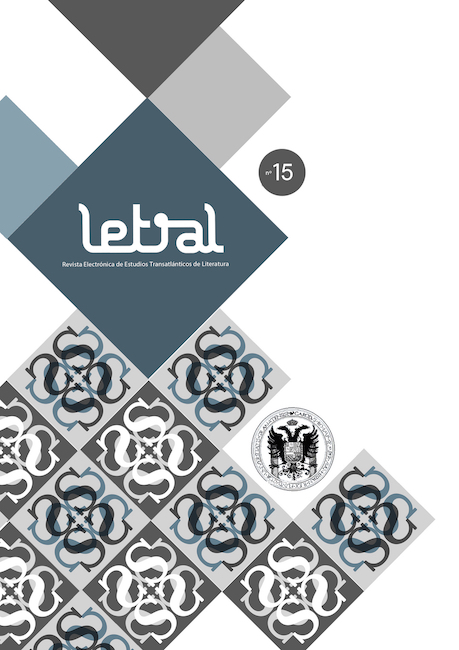Conceptos de Jacques Rancière como herramienta de análisis en dos obras de la narrativa de Roberto Bolaño
DOI:
https://doi.org/10.30827/rl.v0i15.4641Palabras clave:
Literatura, ficción, política, policía, disensos.Resumen
Mi propuesta toma los conceptos de ficción, política y policía propuestos por Jacques Rancière como herramientas de análisis en la narrativa.Articulando dichos conceptos pretendo responder tres cuestiones: ¿Cuál es el posible trabajo de ficción o de operación de disenso en la novela Estrella Distante de Roberto Bolaño? ¿Cuáles son las nuevas formas de enunciación que operan para cambiar la lógica policial en la historia?¿Cómo se reconfigura el espacio de exclusión al cual el narrador y sus amigos han sido abandonados? En la reflexión de los conceptos de política y policía verificaré la hipótesis de que Estrella distante puede verse como una búsqueda de lo político, como una averiguación incesante en la redistribución de términos y lugares que no había sido posible en la obra La Literatura Nazi en América.Descargas
Citas
Areco Morales, Macarena (2013). “Imaginarios de sujeto en la narrativa de dos mil: la figura del escritor en la obra de Roberto Bolaño”, en Mitologías hoy: Revista de pensamiento, crítica y estudios literarios latinoamericanos,vol. 7, n.° especial, 141-151.
Bajtín Mijaíl (1989). “Épica y novela (acerca dela metodología del análisis novelístico)”, en Teoría y estética de la novela. Madrid: Taurus.
Benjamin, Walter (1991). “El narrador”, en Para una crítica de la violencia y otros ensayos. Iluminaciones IV. Madrid: Taurus, 111-134.
Benjamin, Walter (1994). Discursos interrumpidos. Barcelona, Taurus.
Bolaño, Roberto (1996). Estrellas Distante. Barcelona: Anagrama.
Bolaño, Roberto (2008). Estrellas Distante. Barcelona: Anagrama (1ra.Edición 1996).
Foucault, Michel (1998). La verdad y las formas jurídicas. Barcelona: Gedisa,1998.
Mansilla Rodríguez, Fernando (2013). “Roberto Bolaño, Cervantes y Soldados de Salamina”, en Revista Letral, n.° 11, 135-144.
Manzoni, Celina (2002) “Narrar lo inefable: el juego del doble y los desplazamientos en Estrella distante”, en Roberto Bolaño La escritura como tauromaquia, Buenos Aires: Corregidor, 145-151.
Rancière, Jacques (1996). El desacuerdo. Política y filosofía. Buenos Aires: Nueva Visión.
Rancière, Jacques (2010). El espectador emancipado. Castellón: Ellago.
Rancière, Jacques (2012). El odio a la democracia. Buenos Aires: Amorrortu.
Vila Matas, Enrique (2014). “Libros inexistentes”, en El País (1 de julio de 2014): [En Línea] U RL: http://cultura.elpais.com/cultura/2014/06/30/actualidad/1404144996_596352.html [Consulta de 1 de Agosto de 2014].
Descargas
Publicado
Cómo citar
Número
Sección
Licencia
Revista Letral es una publicación de acceso abierto e inmediato totalmente gratuita, tanto para quien lee como para quien publica. Los autores y las autoras no pagan ningún tipo de tasa por el proceso editorial de sus artículos. Permitimos la lectura, descarga, copia, distribución, impresión, búsqueda, enlace o reutilización con fines no comerciales de todos los trabajos publicados, siempre que se citen la autoría, la revista y el órgano editor. Recomendamos encarecidamente la difusión de los artículos en redes sociales (Facebook, Twitter, LinkedIn, etc.) y científicas (ResearchGate, Academia.edu, etc.), repositorios institucionales universitarios y otros repositorios públicos, blogs y webs personales o institucionales, Google Scholar, ORCID, ResearchID, ScopusID, etc. En cualquier caso, la propiedad intelectual de los artículos y los posibles derechos económicos derivados de ellos son exclusivamente de sus autores.














